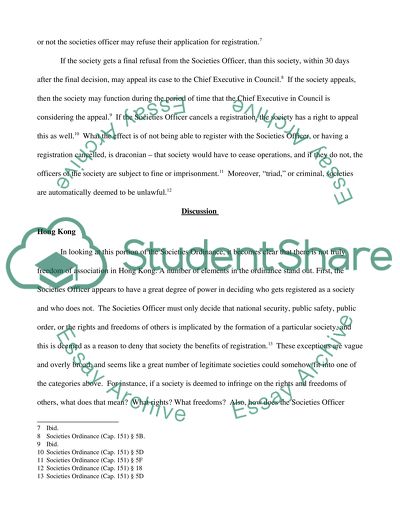Cite this document
(“Freedom of Association in Hong Kong, Great Britain and The United Essay”, n.d.)
Retrieved from https://studentshare.org/law/1395183-freedom-of-association-in-hong-kong-great-britain-and-the-united-states
Retrieved from https://studentshare.org/law/1395183-freedom-of-association-in-hong-kong-great-britain-and-the-united-states
(Freedom of Association in Hong Kong, Great Britain and The United Essay)
https://studentshare.org/law/1395183-freedom-of-association-in-hong-kong-great-britain-and-the-united-states.
https://studentshare.org/law/1395183-freedom-of-association-in-hong-kong-great-britain-and-the-united-states.
“Freedom of Association in Hong Kong, Great Britain and The United Essay”, n.d. https://studentshare.org/law/1395183-freedom-of-association-in-hong-kong-great-britain-and-the-united-states.


